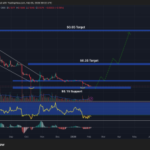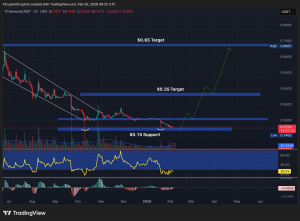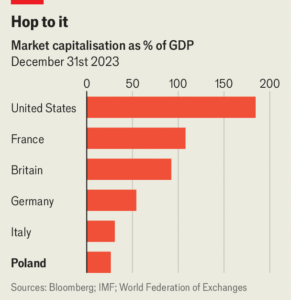Last updated:
 Why Trust Cryptonews
Why Trust Cryptonews

Ethereum co-founder Vitalik Buterin has shared an ambitious roadmap for the network’s next stage of development, dubbed “The Surge.”
In an October 17th blog post, Buterin detailed the roadmap’s objectives, focusing on increasing Ethereum’s transaction capacity to over 100,000 transactions per second (TPS) while maintaining its core principles of decentralization and security.
This next phase builds on Ethereum’s current rollup-centric strategy but also acknowledges some unique challenges emerging as the network evolves.
The Surge roadmap comes after the Dencun upgrade earlier in 2024, which introduced scaling improvements like “blobs” to reduce transaction fees and increase data efficiency on Layer 2 networks.

“The Surge” Roadmap: Ethereum’s Scalability In View?
At the heart of The Surge is Ethereum’s commitment to maintaining a decentralized and secure network while scaling its capacity through Layer 2 solutions like rollups.
Buterin highlighted that although rollups have proven effective in improving transaction speed and lowering costs, more work is required to make them as trustless and robust as Ethereum’s Layer 1.
He noted that trustless rollups are essential to ensure these Layer 2 solutions can inherit Ethereum’s core properties of security and openness.
One key challenge is overcoming the “scalability trilemma,” which refers to the balance between scalability, decentralization, and security.
Buterin acknowledged that Ethereum must scale at the Layer 2 level and at the Layer 1 base chain to support the growing demand.
If Layer 2 solutions become too successful while Layer 1 remains limited in its processing capacity, Ethereum could face risks to its economic stability and overall ecosystem health.
One proposed solution is increasing Ethereum’s gas limit, though Buterin warned that this could lead to centralization risks. Higher gas limits would increase the operational costs for validators, potentially limiting participation in securing the network.
Regarding immediate improvements, Buterin suggested reducing the cost of certain computational tasks without sacrificing decentralization.
He pointed to “multidimensional gas pricing” and more efficient bytecode formats as potential solutions that would allow Ethereum to scale while preserving its credibility as a robust base layer.
Improving Layer 2 Interoperability and User Experience
Another critical aspect of The Surge roadmap is improving interoperability between Ethereum’s Layer 2 networks.
Buterin emphasized that Ethereum should feel like a unified ecosystem rather than a fragmented collection of independent blockchains.
For users, this means reducing the friction between different Layer 2 platforms by simplifying moving assets across chains.
Users often need help transferring tokens between Layer 2 networks, including manually bridging or swapping tokens.
Buterin’s vision for The Surge is to eliminate these barriers, allowing users to navigate the Layer 2 ecosystem more seamlessly.
One proposed improvement is the ability for Layer 2 networks to communicate more effectively in the background, reducing the need for user intervention.
This would allow users to send tokens across Layer 2 networks without swapping them into a native token for gas payments, thereby streamlining the overall experience.
Buterin also highlighted the importance of ongoing developments, such as Ethereum’s data availability sampling and the introduction of EIP-4844, which are expected to improve the network’s bandwidth and enable Ethereum to handle higher transaction volumes more efficiently.
Buterin’s roadmap also touched on Ethereum’s historical shift from sharding toward rollups, which has been the network’s primary scaling strategy since 2020.
Sharding was originally conceived to divide Ethereum into multiple chains that would process transactions in parallel.
Still, rollups, which move computation off-chain while preserving security, have become the preferred solution. Notably, at TOKEN2049 in Singapore, Vitalik Buterin delivered an optimistic keynote about the platform’s future, which aligns with this new technical approach.
















